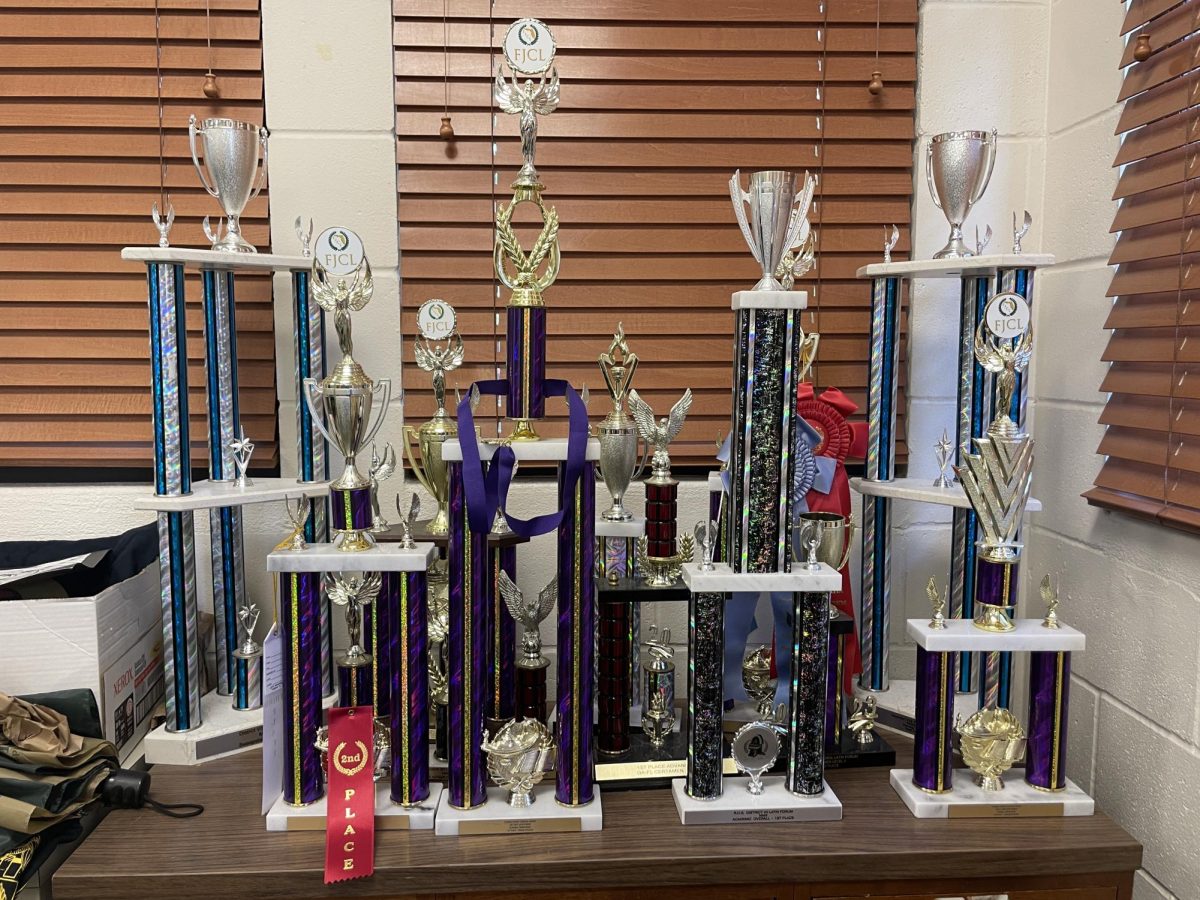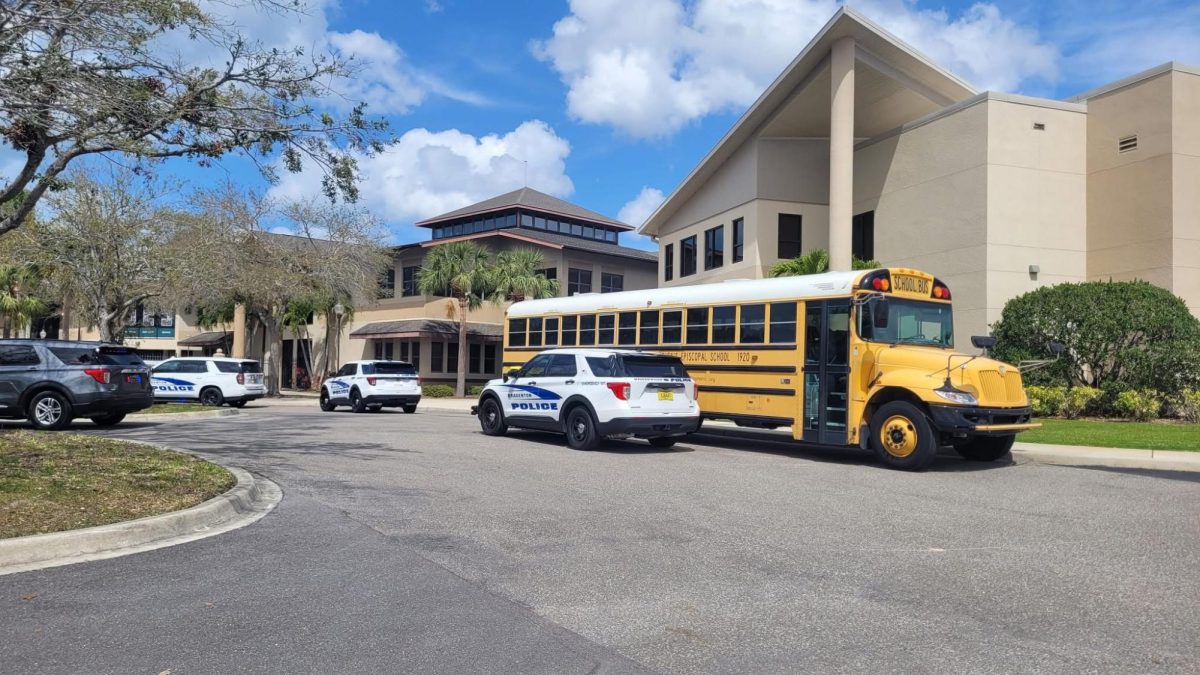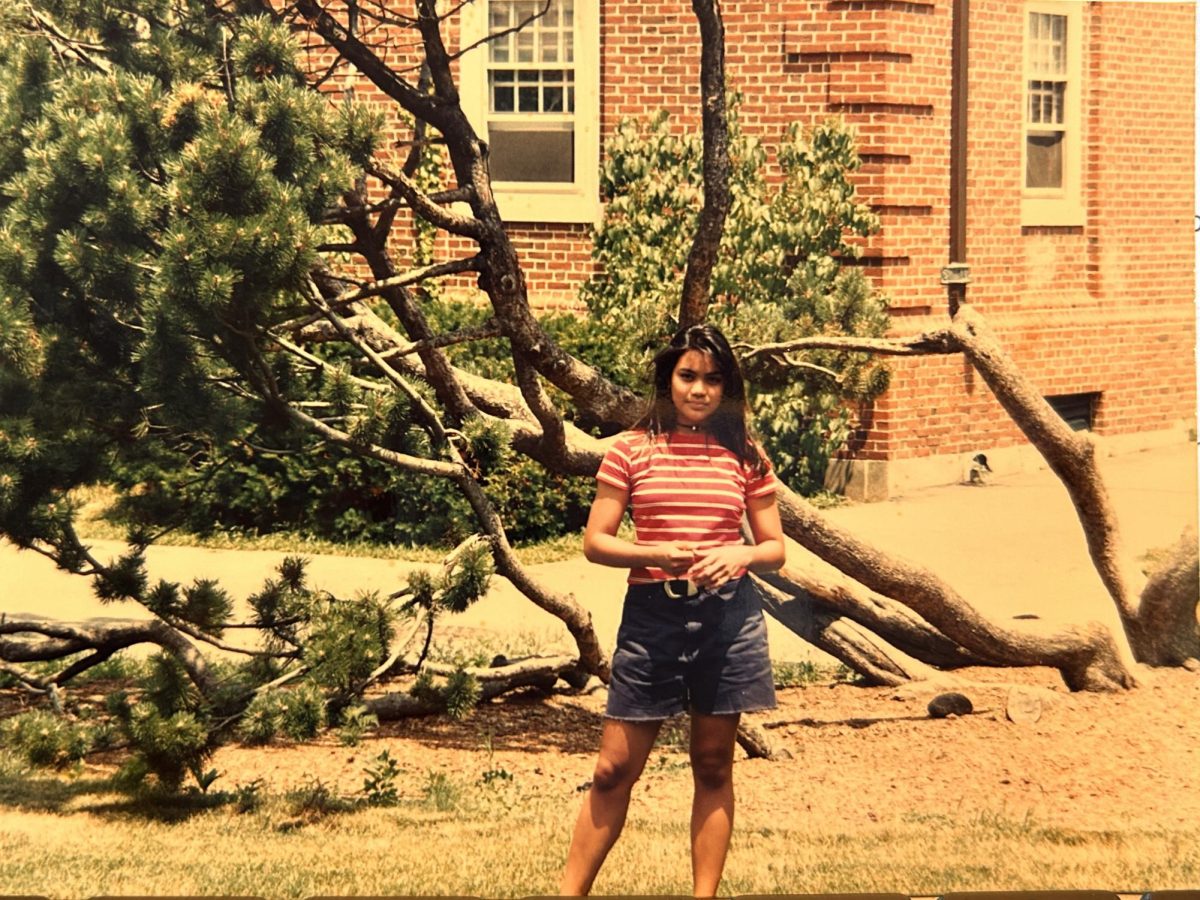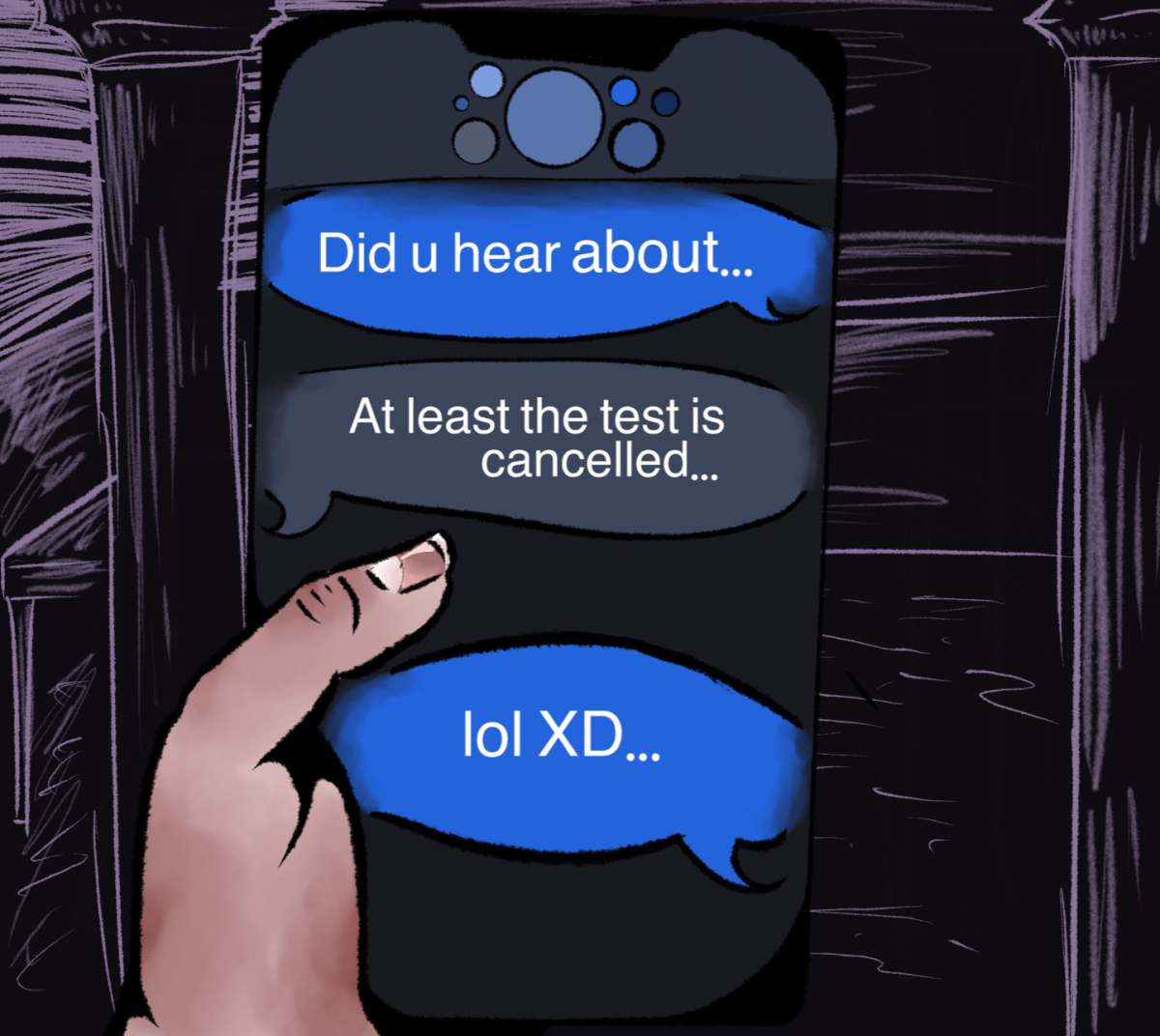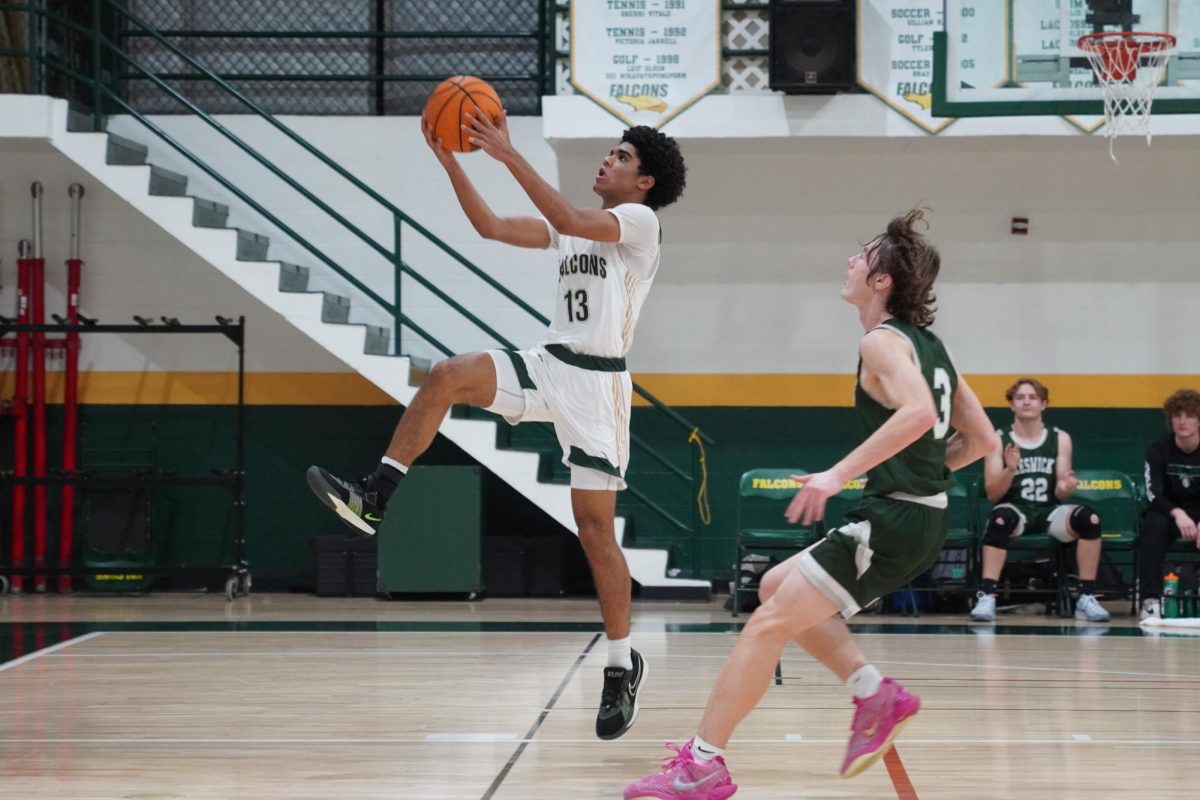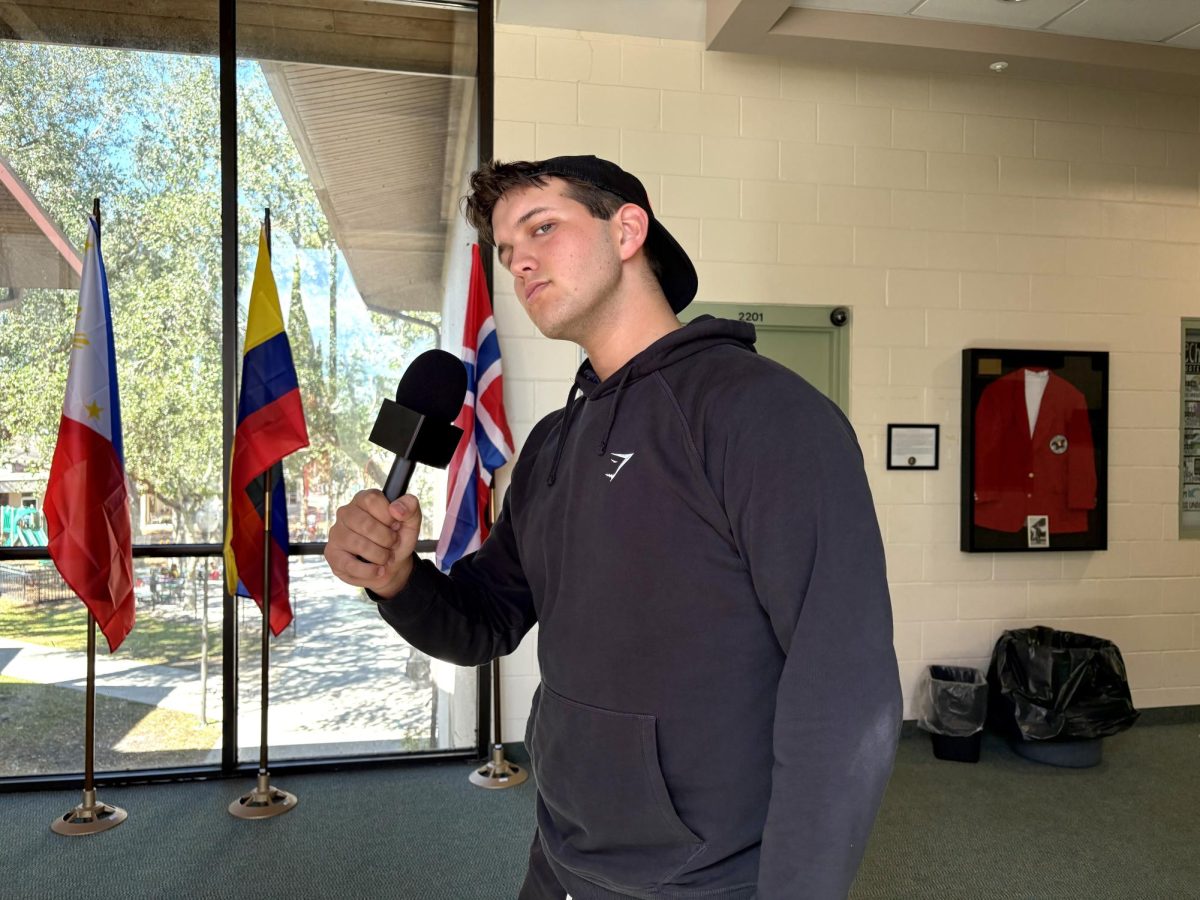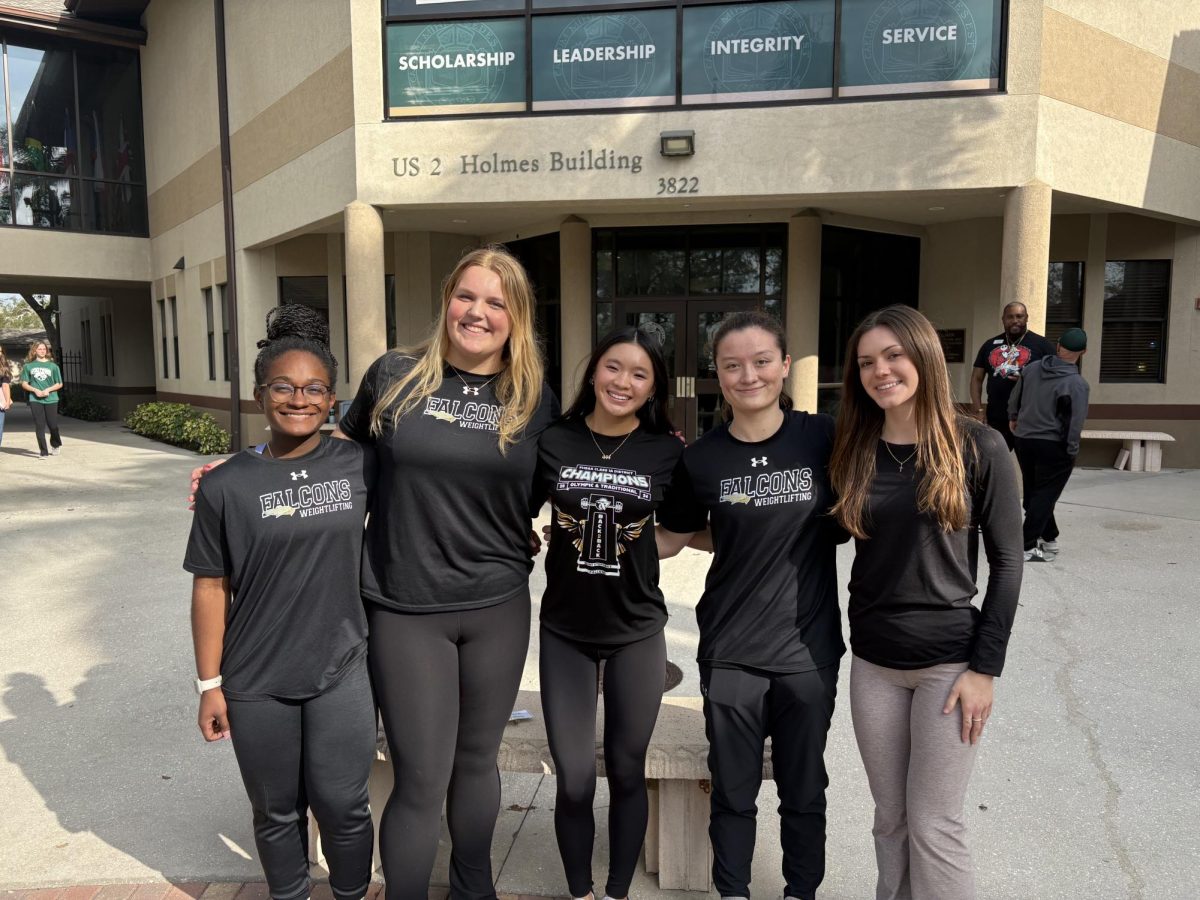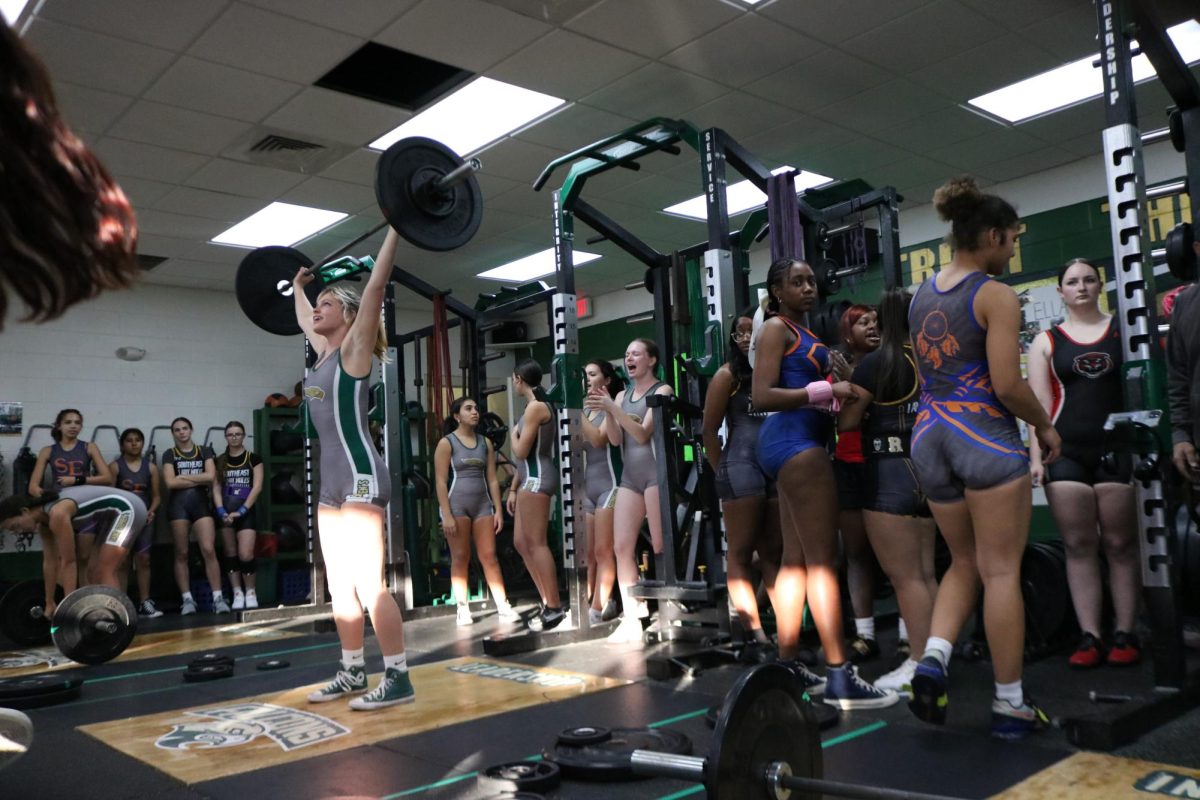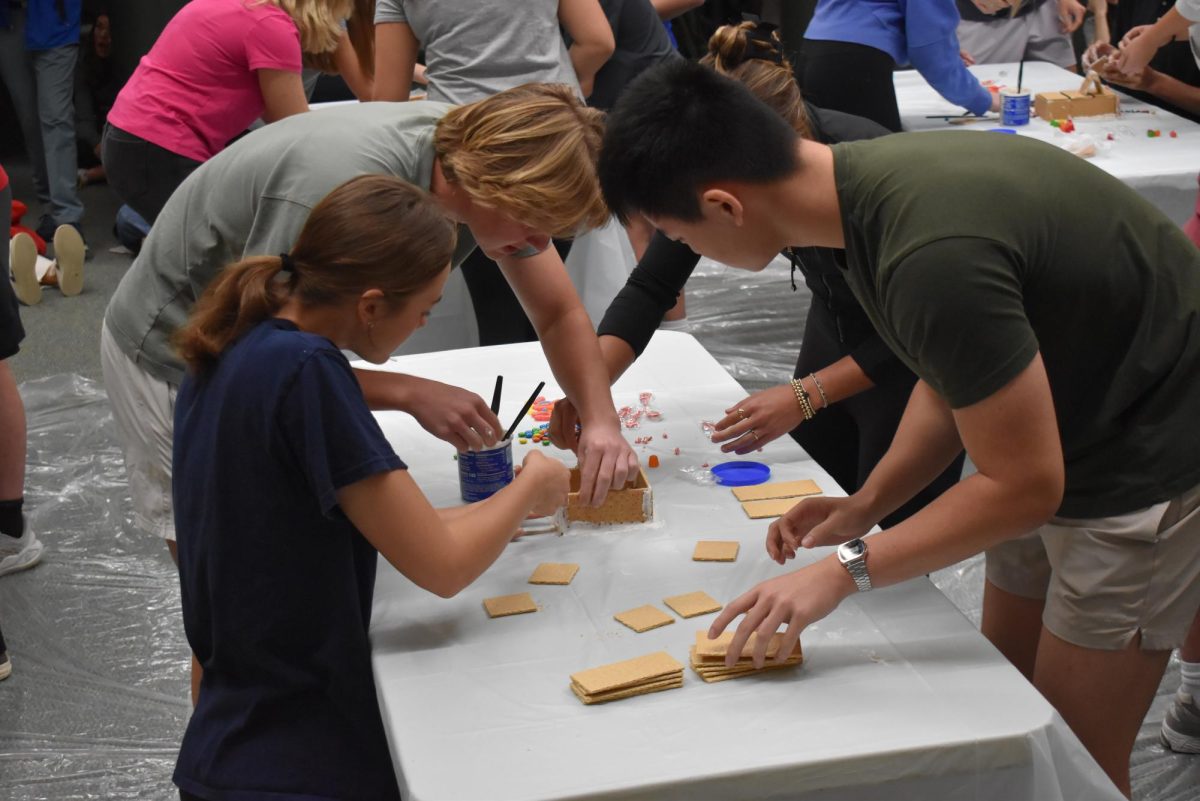The melodious DING of an update never sounded so stressful. As the suspense builds, seniors stare down their unread e-mails that holds news of their future. College decisions continuously pervade the minds of Saint Stephen’s seniors as universities start to notify students of their application status.
College application process
Saint Stephen’s seniors are currently sitting back as the notifications with college decisions roll in. However, as they prepare for the next step of their lives, the seniors also still remember last semester’s challenge of balancing college applications and schoolwork.
Most agree that balancing college forms and regular schoolwork can be overwhelming during the first semester. Senior Chase Myers found himself mired in work this fall.
“It was a struggle because there’s a lot of work in the beginning. There was a lot of homework that needed to be done on top of applications,” Myers said.
Senior Delia Revard said that just motivating herself to get everything done was most difficult for her.
“When you’re in that situation, you think, ‘Okay, I need to get this application done by X date, and I need to write these essays.’ But you also need to keep on top of schoolwork at the same time, so that you know you’re not failing your classes senior year,” she said.
As for Senior Omar Sammour, he did not know exactly how to start the application process at first, but Mr. Rick Ellis, former director of college counseling, told him that ample time was needed to put his best foot forward.
“Luckily, [he] told me I needed to begin three months before they were due,” Sammour said. “You’re applying to eight or nine colleges, so you have to give yourself enough time to write each essay precisely, impress the college and tell them about yourself.”
A self-proclaimed “huge procrastinator,” Senior Catie Brown suggested to start ahead of time to avoid high-stress essay writing.
“I set everything off to the last minute. I definitely wouldn’t suggest that, but I survived,” she said.
Senior Laura DeMaio, who said she had to write a lot of essays, said one can never start applications too early.
“I finished them all before Christmas break. Afterwards, I just attended various alumni interviews locally,” she said.
Seniors also suggest paying close attention to deadlines and application requirements, since they can vary by program. Revard, for example, said her college application process was a bit different because she applied to several Bachelor of Fine Arts (BFA) programs.
“Of course, I had to apply to the colleges with the common application and fill out all the [supplement portions of the] written applications, but I also auditioned for programs at Wright State University in Ohio and at Elon in North Carolina. I sent in an audition tape to Fordham University in New York,” Revard said. “All the other schools that I applied to had theatre programs but didn’t require auditions. I had to learn monologues, songs and dances for the auditions. They’re really intense, very competitive programs and super difficult to get into,” she said.
While the majority of seniors are currently awaiting college decisions, seniors Todd Liebel and Rachel Stanell can look on calmly, since they applied through an early program and received notification of their acceptance status during first semester.
Stanell will attend the University of Alabama, which has a rolling admissions process. She heard back just two weeks after submitting her application that she had gotten into one of her favorite schools.
“I was really excited. After I got that acceptance letter, I applied to a few more and heard back from those schools that I had also gotten in to them. Since I knew that I had gotten in into my top three [colleges], I just called it,” she said.
Liebel said the tough part was deciding.
“I thought I wanted to go to Florida Gulf Coast just because it was so nice; it had single dorm rooms and beaches. But as I visited more and more, I wasn’t sure if I liked the people,” he said. “I went to University of Tampa, and I loved the feel of it. The people were nice, [and] it was just such a nice atmosphere. I couldn’t put my finger on one thing I liked. As a whole it is fantastic, so I just decided to go there,” Liebel said.
The hardest challenge
Myers said that it was difficult to limit his responses and to find just one specific moment in his life that he wanted to tell colleges on the application.
“There was a box that said if you have any comments about yourself to please list them there. I said, ‘Because it’s me, this box is too small for me to put any sort of comment in because my life is just that [awesome].’ Something like that shows colleges and people that you have a lot to offer on the table,” he said.
Senior Zhuo Zhao said there were also technical challenges, like remembering several different passwords.
“I wrote all of them down, but even then it was hard to keep track. And along with the passwords, writing different essays and saving them all was pretty confusing since many of them were different word limits and topics,” Zhao said.
In addition to the written portion of the application process, DeMaio said the follow-up interviews posed another challenge.
“I had to go through an academic interview where I was asked about things I had previously read. I was also asked to conduct the interview in French, which was nerve wracking,” she said.
Picking the right college
Once the applications were completed, the seniors said the process was almost complete but another challenge remains: making the right decision. Senior Kristi Jones said that it is important to learn as much as possible about each college in order to find the best fit.
“There are a lot of similarities between colleges, but you need to find the differences to narrow them down. Figuring out what you want in a college, like size and atmosphere, is hard,” Jones said.
Sammour said that in addition to conducting online research by himself, the college counseling department helped him to decide which schools he liked most.
“When you sit down with the college counselor, they will ask you what your preferences are, like what sized school you’re looking for and what you want to get out of the school. They will lead you in a certain direction,” he said.
Brown said that she chose to apply to smaller schools out of state because the size and location of the college were important factors for her.
“[In a smaller school], I could have more time with teachers. I could get to know more of the students and have a better feel of community. Also, I knew [that] I wanted to go out of state, so I looked at schools in the northeast,” she said.
Zhao picked colleges based [on] the options for academic majors she was interested in – biology and law.
“I’m looking for schools with both, since I don’t know what I want to do. Along with the majors, I chose them on location and surroundings,” she said.
While the seniors anxiously await their acceptance letters, Revard said that she feels relieved but is ready to start her future endeavors.
“It’s fourth semester and the senioritis is kicking in hardcore. But I still have to fill out scholarship apps and maintain grades in school. Plus, there’s now the pressure of actually deciding where I want to spend the next four years,” she said.
Zhao agreed that the college application process was stressful but is now happy to enjoy the fruits of her labor.
“I’ve heard back from five of my schools, but I’m still waiting on four. Now that I’m just waiting, I’m planning on spending these last two months with all of my friends and relaxing,” Zhao said. “The beginning of this year was so stressful that it’s nice to now just have some time to hang out.”



